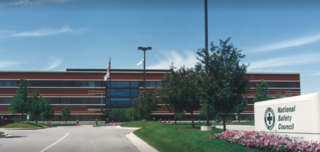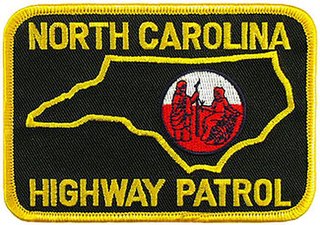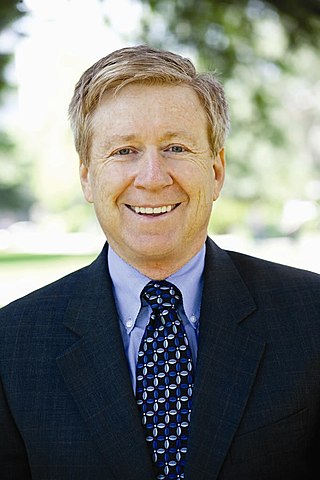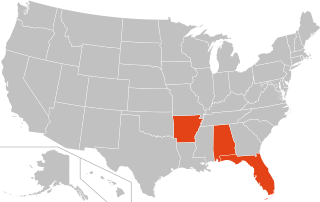Related Research Articles

American Automobile Association is a federation of motor clubs throughout North America. AAA is a privately held not-for-profit national member association and service organization with over 60 million members in the United States and Canada. AAA provides services to its members, including roadside assistance and others. Its national headquarters are in Heathrow, Florida.

Automotive safety is the study and practice of automotive design, construction, equipment and regulation to minimize the occurrence and consequences of traffic collisions involving motor vehicles. Road traffic safety more broadly includes roadway design.

Road traffic safety refers to the methods and measures used to prevent road users from being killed or seriously injured. Typical road users include pedestrians, cyclists, motorists, vehicle passengers, and passengers of on-road public transport.

The California Highway Patrol (CHP) is the principal state police agency for the U.S. state of California. The CHP has primary patrol jurisdiction over all California highways and roads and streets outside city limits, and can exercise law enforcement powers anywhere within the state. The California Highway Patrol can assist local and county agencies and can patrol major city streets along with local and county law enforcement, state and interstate highways, and is the primary law enforcement agency in rural parts of the state.

Defensive driving describes the practice of anticipating dangerous situations, despite adverse conditions or the mistakes of others when operating a motor vehicle. It can be achieved by adhering to general guidelines, such as keeping a two- or three-second gap between the driver's vehicle and the vehicle in front to ensure adequate space to stop. It is a form of training for drivers that goes beyond road rules and the basic mechanics of driving techniques. Defensive driving reduces the risk of collisions and improves road safety.

The Insurance Institute for Highway Safety and Highway Loss Data Institute (IIHS-HLDI) is an American nonprofit organization. It was established in 1959, and it is noted for its safety reviews of vehicles in various simulated traffic situations, including the effectiveness of a vehicle's structural integrity and safety systems during a collision, in addition to examining improvement on such elements.

The National Safety Council (NSC) is a 501(c)(3) nonprofit, public service organization promoting health and safety in the United States. Headquartered in Itasca, Illinois, NSC is a member organization, founded in 1913 and granted a congressional charter in 1953. Members include more than 55,000 businesses, labor organizations, schools, public agencies, private groups and individuals.

The North Carolina State Highway Patrol (NCSHP) is the highway patrol agency for North Carolina which has no per-se "state police" agency. The Patrol has jurisdiction anywhere in the state except for federal or military installations and on the Cherokee Indian Reservation or on Cherokee outlying lands in the western mountains. NCSHP personnel at times conduct formations, inspections, honor guard activities. The primary mission of the North Carolina State Highway Patrol is to ensure safe and efficient transportation on the streets and highways, reduce crime, protect against terrorism, enforce motor vehicle laws, and respond to natural and man-made disasters.

Alan Stuart Lowenthal is an American politician who served as the U.S. representative for California's 47th congressional district from 2013 to 2023. A member of the Democratic Party, he served as the California state assemblyman for the 54th district from 1998 to 2004 and California state senator from the 27th district from 2004 to 2012. In both posts, Lowenthal represented the city of Long Beach and its surrounding suburbs. On December 16, 2021, Lowenthal announced that he would not seek reelection to Congress.

Mark James DeSaulnier is an American politician who has served as a U.S. representative from California since 2015. He has represented the 10th congressional district since 2023, although it was previously numbered the 11th district for his first eight years in office. The district includes most of Contra Costa County, a suburban county in the East Bay. He has been a member of the Democratic Party since 2000; before that, he was a Republican.

George C. Runner Jr. is an American politician from California who served on the California State Board of Equalization, the only publicly elected tax commission in the United States. A Republican, he represented the Board's 2nd District from 2011 to 2015 and the renumbered 1st District from 2015 to 2019.

Wrong-way driving (WWD), also known as contraflow driving, is the act of driving a motor vehicle against the direction of traffic. It can occur on either one- or two-way roads, as well as in parking lots and parking garages, and may be due to driver inattention or impairment, or because of insufficient or confusing road markings or signage, or a driver from a right-hand traffic country being unaccustomed to driving in a left-hand traffic country, and vice versa. People intentionally drive in the wrong direction because they missed an exit, for thrill-seeking, or as a shortcut.

The Solomon–Lautenberg amendment is a U.S. federal law enacted in 1990 that urges states to suspend the driver's license of anyone who commits a drug offense. A number of states passed laws in the early 1990s seeking to comply with the amendment, in order to avoid a penalty of reduced federal highway funds. These laws imposed mandatory driver's license suspensions of at least six months for committing any type of drug offense, regardless of whether any motor vehicle was involved in the offense. As the amendment allows states to "opt out" without penalty, however, only three states continue to have such laws in effect as of 2021.

A traffic collision, also known as a motor vehicle collision, or car crash, occurs when a vehicle collides with another vehicle, pedestrian, animal, road debris, or other moving or stationary obstruction, such as a tree, pole or building. Traffic collisions often result in injury, disability, death, and property damage as well as financial costs to both society and the individuals involved. Road transport is statistically the most dangerous situation people deal with on a daily basis, but casualty figures from such incidents attract less media attention than other, less frequent types of tragedy. The commonly used term car accident is increasingly falling out of favor with many government departments and organizations, with the Associated Press style guide recommending caution before using the term. Some collisions are intentional vehicle-ramming attacks, staged crashes, vehicular homicide or vehicular suicide.

The Solomon curve is a graphical representation of the collision rate of automobiles as a function of their speed compared to the average vehicle speed on the same road. The curve was based on research conducted by David Solomon in the late 1950s and published in 1964. Subsequent research suggests significant biases in the Solomon study, which may cast doubt on its findings.
California Casualty Management Company is in the business of providing individuals with insurance coverage, in particular those in the fields of education, law enforcement, fire fighting, and nursing.
National Teen Driver Safety Week (NTDSW) is conducted annually during the third week of October in the United States. It was established by Congress in 2007.

Alcohol-related traffic crashes are defined by the United States National Highway Traffic Safety Administration (NHTSA) as alcohol-related if either a driver or a non-motorist had a measurable or estimated BAC of 0.01 g/dl or above.

Traffic collisions in India are a major source of deaths, injuries and property damage every year. The National Crime Records Bureau (NCRB) 2021 report states that there were 155,622 fatalities, highest since 2014, out of which 69,240 deaths were due to two-wheelers. A study by Insurance Institute for Highway Safety, U.S. shows that the use of seat belts significantly reduces the risks and injuries from road accidents, and yet there is no enforcement on use of seat belts in cars. A study by IIT Delhi points out that the national highways constitute only 2% of the length of roads in India, but they account for 30.3% of total road accidents and 36% of deaths.

Thomas W. Lackey is an American teacher, law enforcement officer and politician currently serving in the California State Assembly. He is a Republican representing the 34th district, encompassing parts of Antelope Valley, Victor Valley, the San Bernardino Mountains, and the Mojave Desert including Barstow and Twentynine Palms to the Nevada state line. Prior to being elected to the state assembly, he served on the Palmdale Elementary School Board and the Palmdale City Council.
References
- ↑ Archived December 27, 2009, at the Wayback Machine
- 1 2 3 4 Archived July 24, 2010, at the Wayback Machine
- ↑ "Home | What Do You Consider Lethal?". Whatdoyouconsiderlethal.com. Retrieved 2014-01-22.
- ↑ "Doubts About Scare Tactics on Drivers Who Text". New York Times . 31 August 2009. Retrieved 2014-01-22.
- ↑ "April 10, 2008 - Teen Driver Safety Week opens April 14 statewide". Archived from the original on 2008-10-27. Retrieved 2010-04-15.
- ↑ Eng. "HR 7 Assembly House Resolution - AMENDED". Leginfo.ca.gov. Retrieved 2014-01-22.
- ↑ Lowenthal. "SCR 65 Senate Concurrent Resolution - INTRODUCED". Leginfo.ca.gov. Retrieved 2014-01-22.